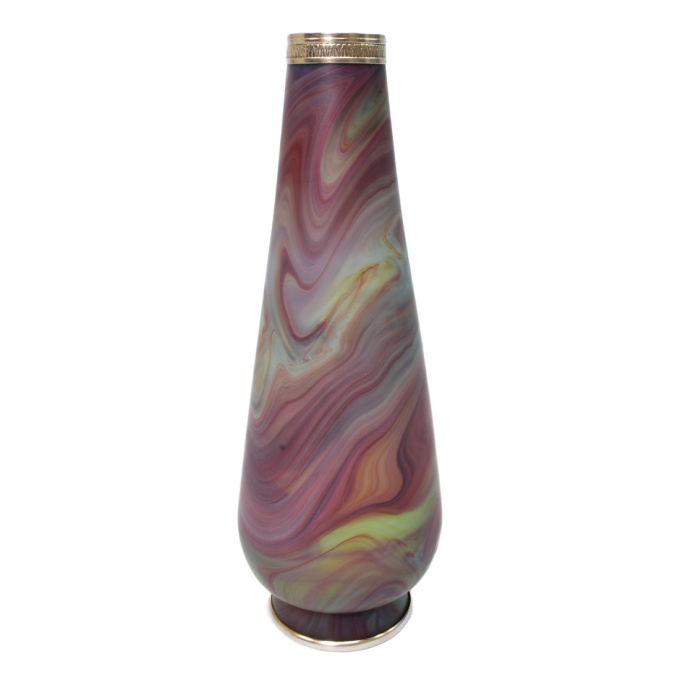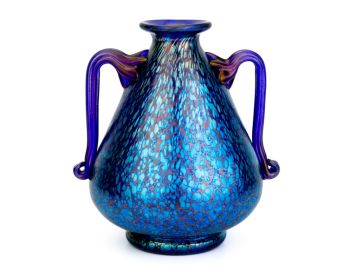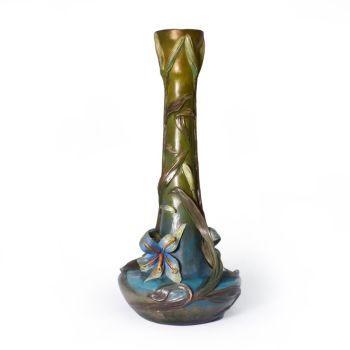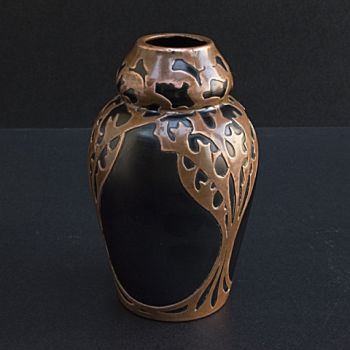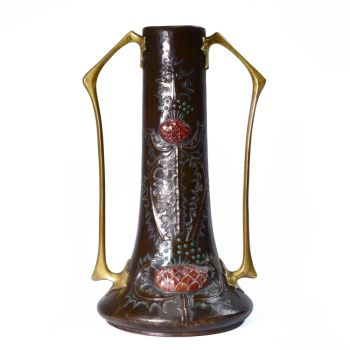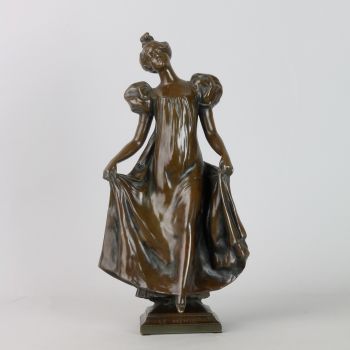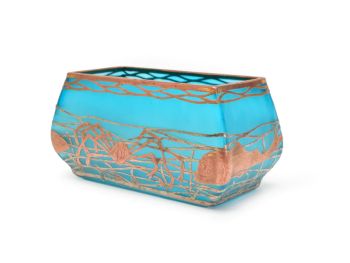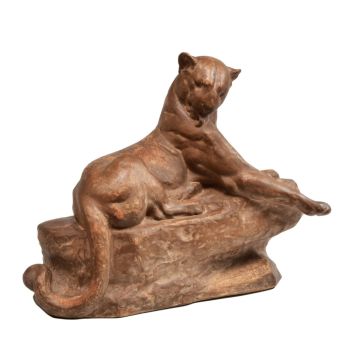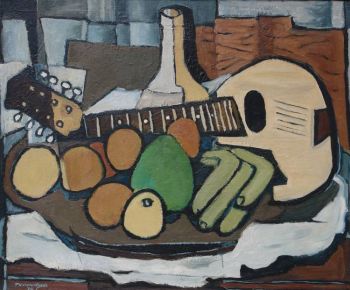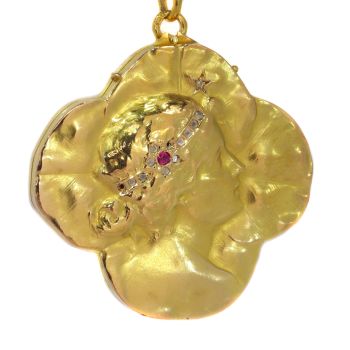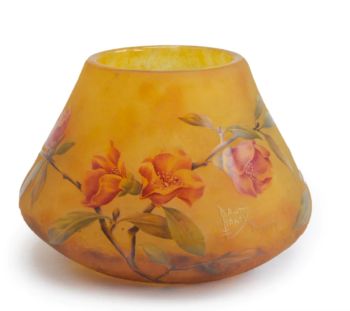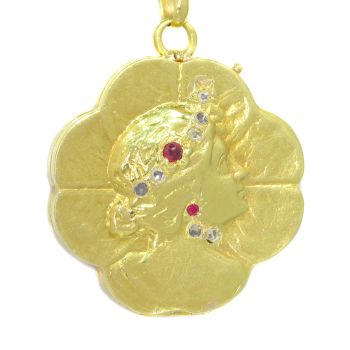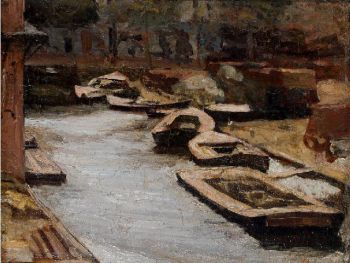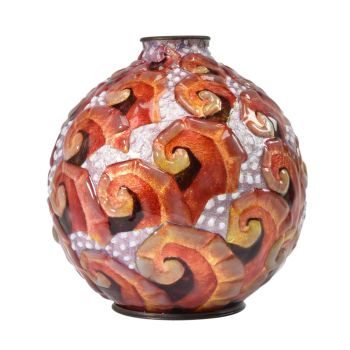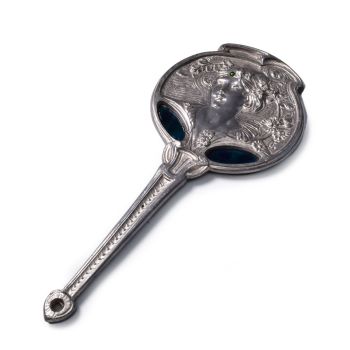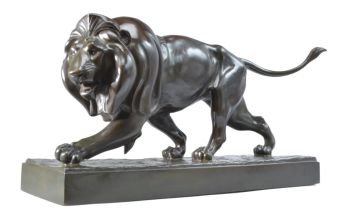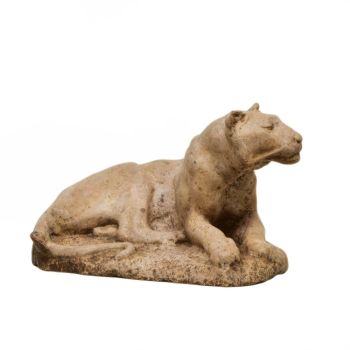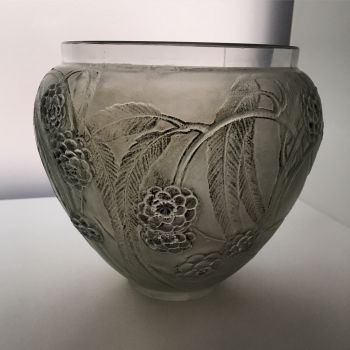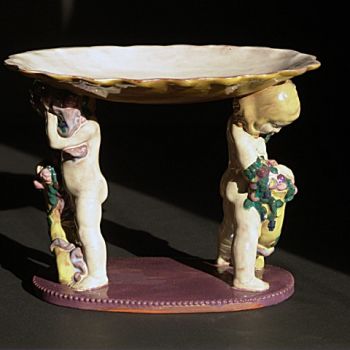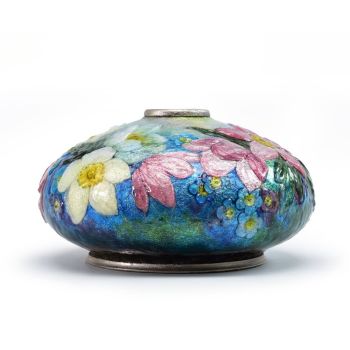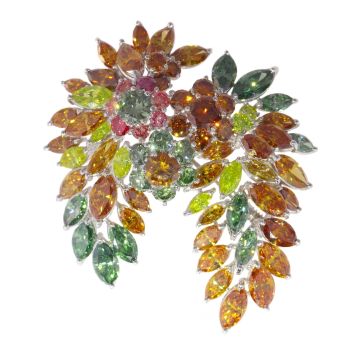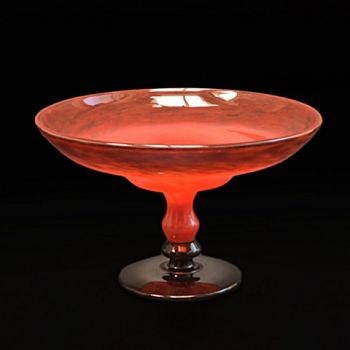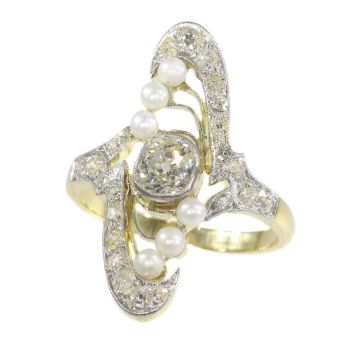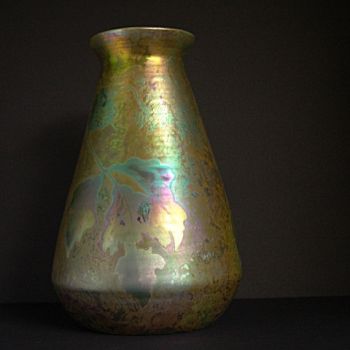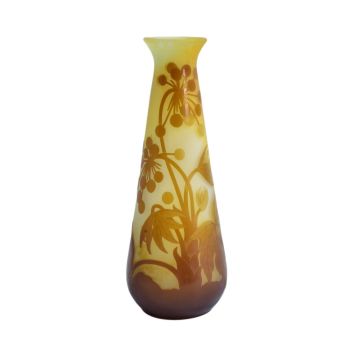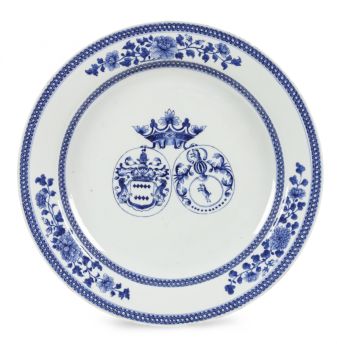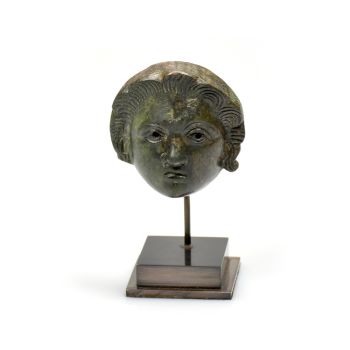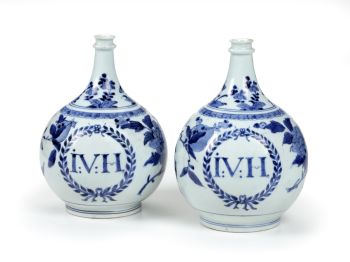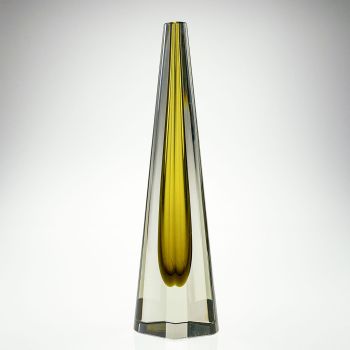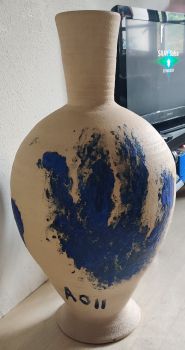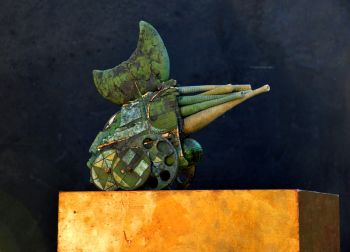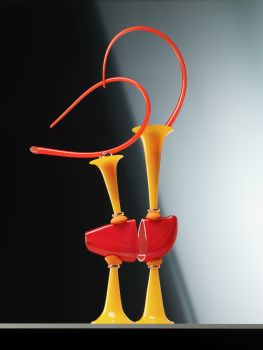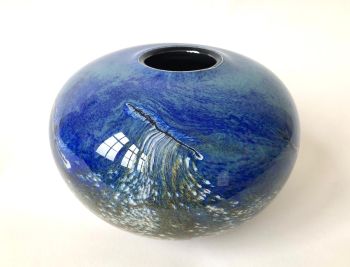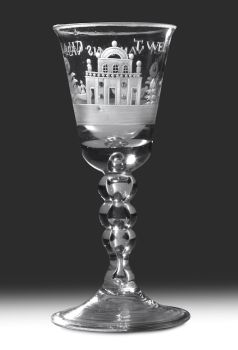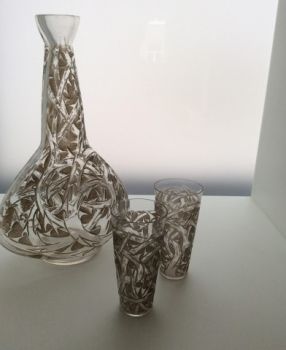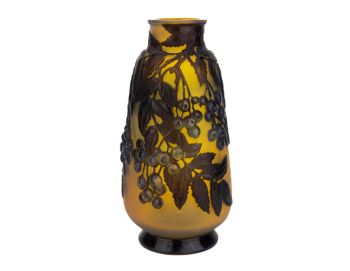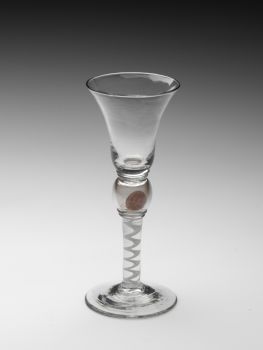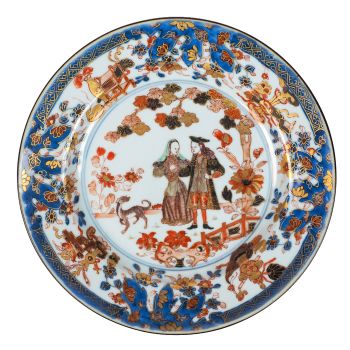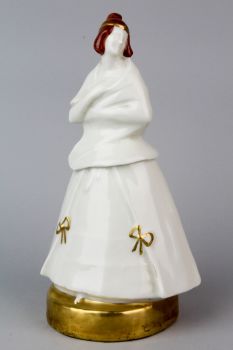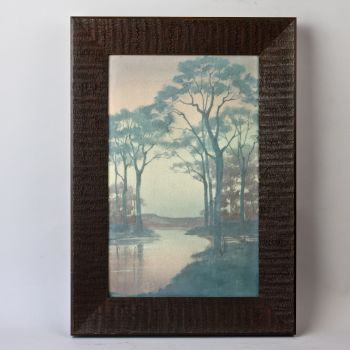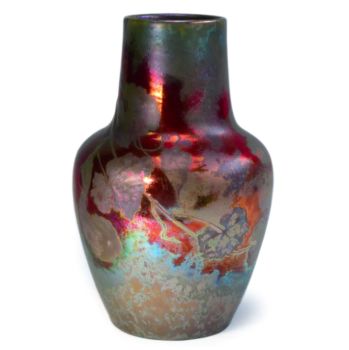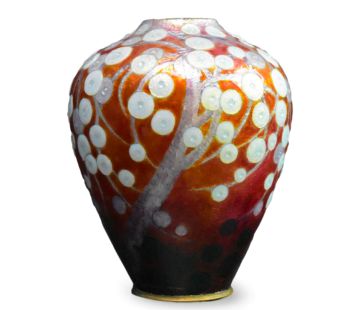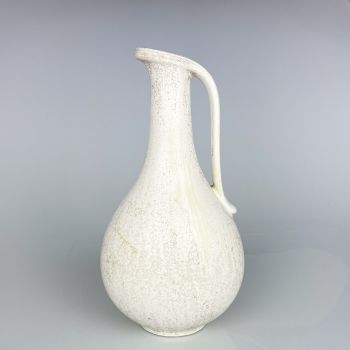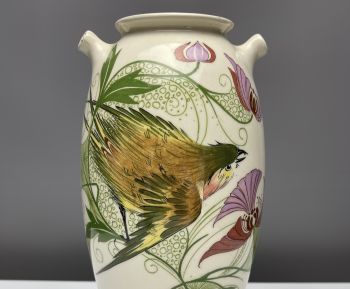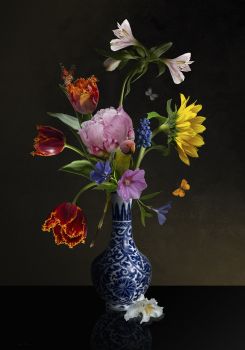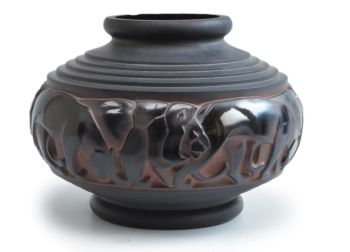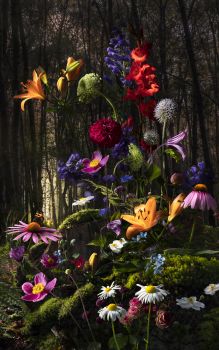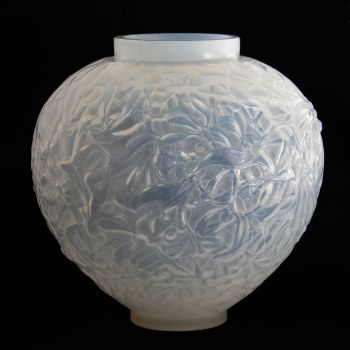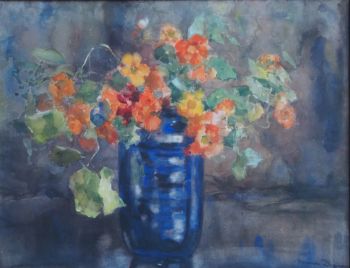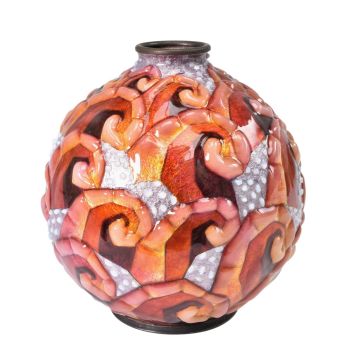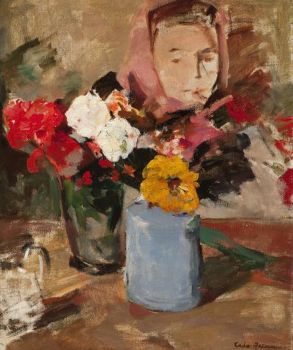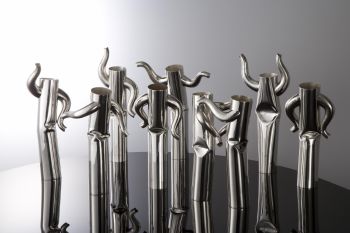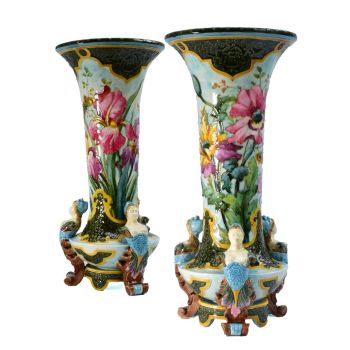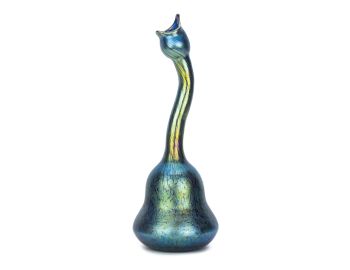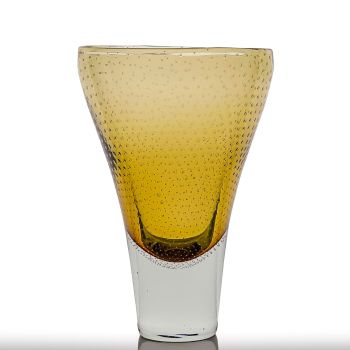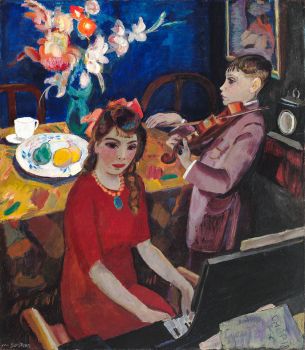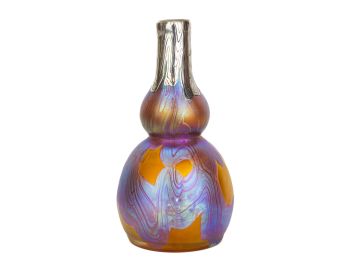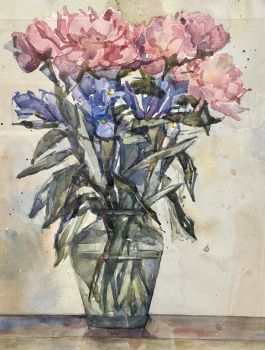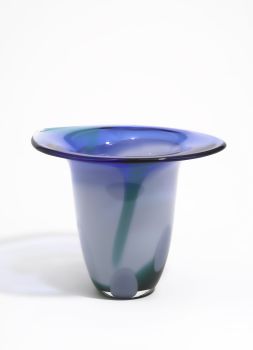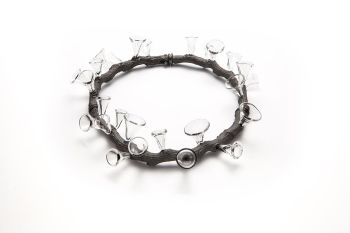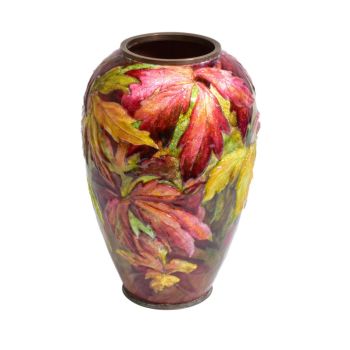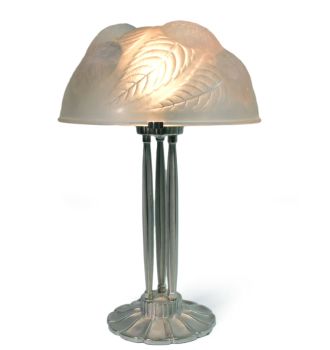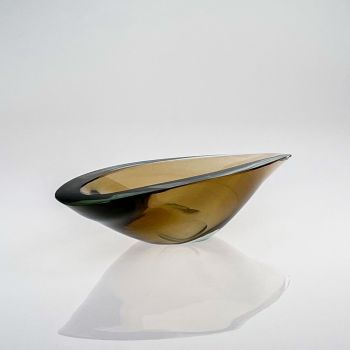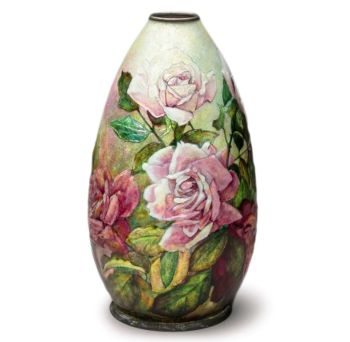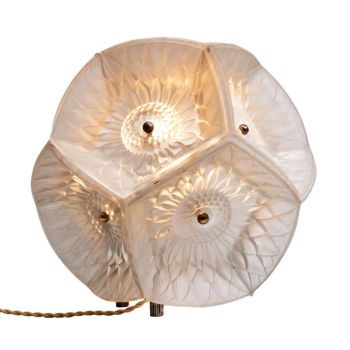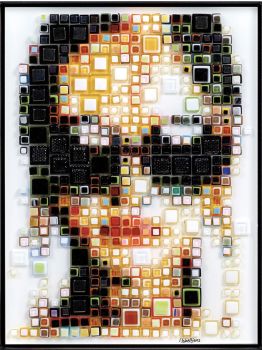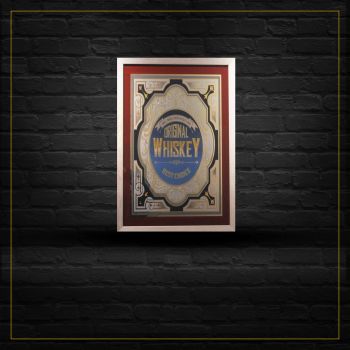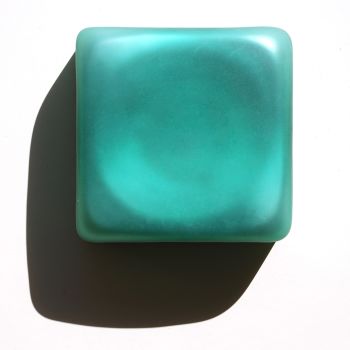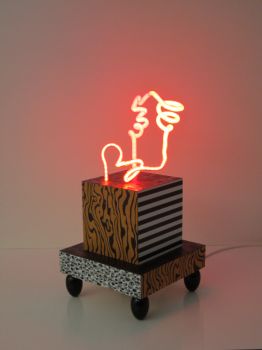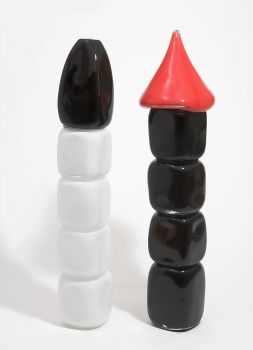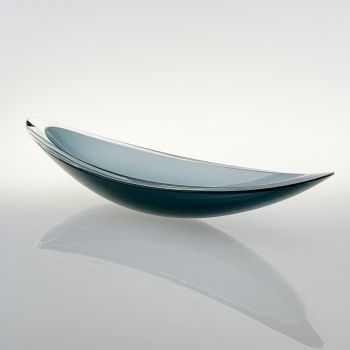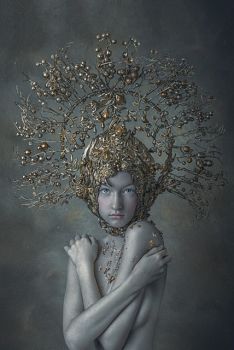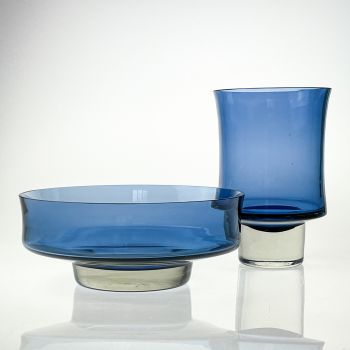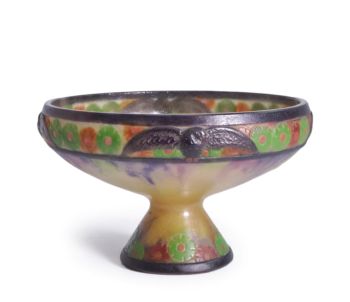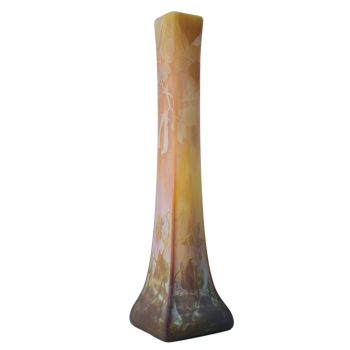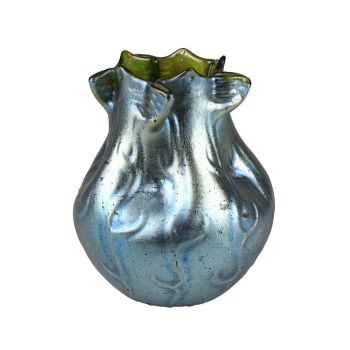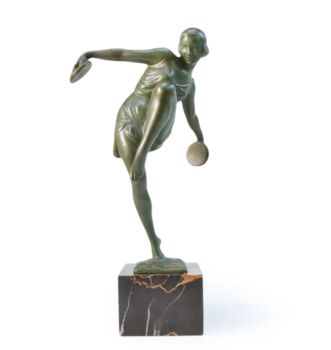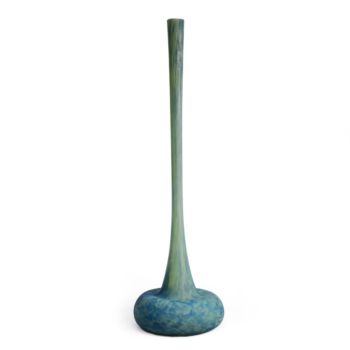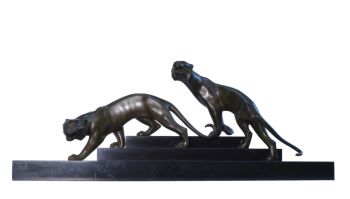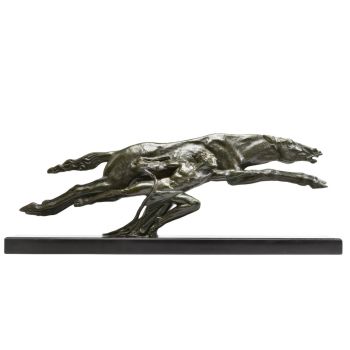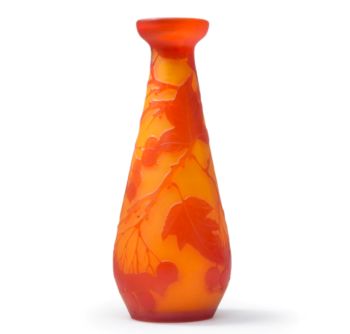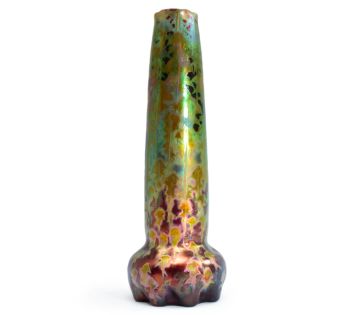Holy smoke 1895
Sèvres
Glass
18 ⨯ 6 ⨯ 6 cm
€ 695
Het Ware Huis
- About the artworkHoly smoke
1895, France
Normale prijs
€695,00 EUR
Dit matte glas van Cristallerie de Sevres met allerlei groen, violet en rood tinten is simpel van vorm, maar perfect van verhouding. De door en door kleur-banen in dit glas doen denken aan agaat. eind 19e eeuw, opmaat naar de art nouveau. Cristalleries De Sevres - Landier et Fils. Lythalin-glas is zeldzaam en werd slechts door een paar glasmakers gemaakt, de meeste Boheems. Sevres was waarschijnlijk de enige Franse glazen huis die het maakte. Zilveren montuur en voet, gemerkt. - About the artist
In 1740, with the support of Louis XV and Madame de Pompadour, a porcelain factory was founded in the disused castle of Vincennes. Between 1753 and 1756, under architect Jean-Baptiste Robert Lindet, a new factory was built in Sèvres, near the Bellevue castle (1750) of Madame de Pompadour.
Production moved to Sèvres in 1756. Not long after, the factory, originally a private enterprise, became royal hands. The name manufacture royale de porcelaine de Sèvres was carried on until the French Revolution. Subsequently, the porcelain factory came into the hands of the state, until 2009 it fell under the Ministry of Culture.
In 2010, the Manufacture nationale de Sèvres, the Musée national de Céramique in Sèvres and the Musée National de la Porcelaine A. Dubouché in Limoges were merged into Cité de la céramique - Sèvres et Limoges. The new organization is responsible for the reissue of old products, but also produces new work in collaboration with contemporary artists.
The factory has traditionally produced both household porcelain and pieces used solely for decorative purposes. Sèvres was best known for the tall vases that were made in different sizes, colours, patterns and scenes. Artists were hired for the designs and paintings. Furniture, clocks and barometers were also decorated with porcelain. The porcelain factory had a separate department where small sculptures or figures were made in white biscuit, modeled by sculptors such as Jean-Jacques Bachelier and Étienne-Maurice Falconet.
Are you interested in buying this artwork?
Artwork details
Related artworks
Johann Loetz (Lötz) Witwe Klostermühle
Johann Loetz Witwe – Jugendstil Cobalt Papillon vaas1900 - 1910
Price on requestAntiques Emporium
1 - 4 / 24- 1 - 4 / 24
Herman Bogman jr.
Flower still life of a nasturtium in a blue vase1950 - 1965
Price on requestAdelwein Kunst
Johann Loetz (Lötz) Witwe Klostermühle
Johann Loetz Witwe – Jugendstil Cobalt Papillon vaas1900 - 1910
Price on requestAntiques Emporium
Johann Loetz (Lötz) Witwe Klostermühle
Johann Loetz Witwe - Phänomen Genre 7773 – Orange1900 - 1910
Price on requestAntiques Emporium
1 - 4 / 24Johann Loetz (Lötz) Witwe Klostermühle
Johann Loetz Witwe - Phänomen Genre 7773 – Orange1900 - 1910
Price on requestAntiques Emporium
1 - 4 / 24- 1 - 4 / 12

